
Hainan Free Trade Port Promotion and Policy Interpretation Conference Aimed at Advancing Hainan-Hong Kong Cooperation Held in Hong Kong As 100-Day Countdown to Special Customs Operations Begins
By / / Updated:21:36,10-September-2025
To further raise awareness of Hainan Free Trade Port (FTP) policies in the Hong Kong Special Administrative Region (HKSAR) and continue to deepen Hainan–Hong Kong cooperation, the Hainan FTP Promotion and Policy Interpretation Conference was held at the Hong Kong Convention and Exhibition Centre, coinciding with the 100-day countdown to the official launch of island-wide special customs operations for the Hainan FTP.
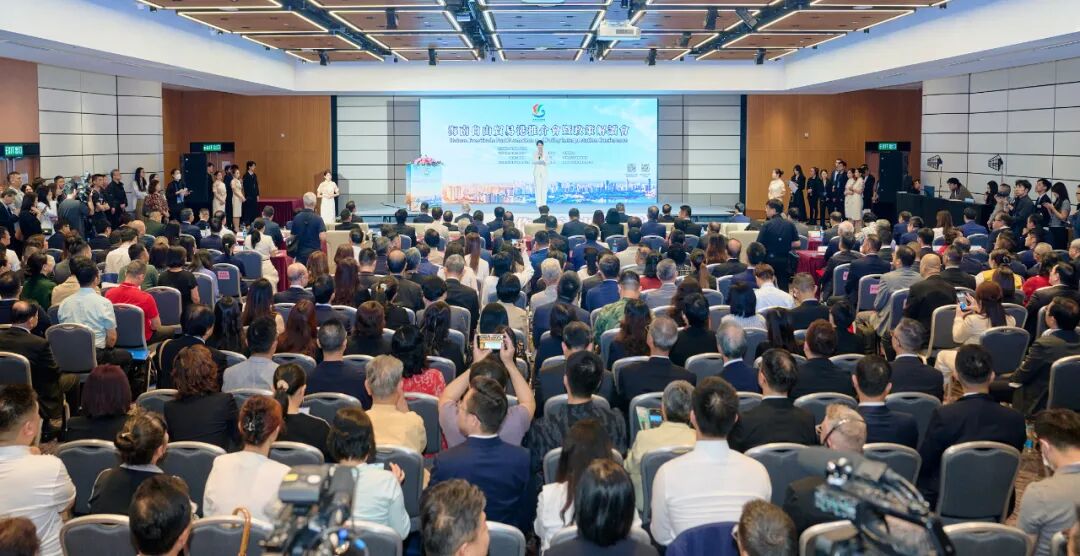
A photo of the conference held in Hong Kong.
The event, themed "Hainan-Hong Kong Cooperation: Mutually Beneficial and Win-win," was organized by the Hainan Provincial People's Government, with co-organizers including the Chinese General Chamber of Commerce, Hong Kong, the Chinese Manufacturers' Association of Hong Kong, the Hong Kong General Chamber of Commerce, the Federation of Hong Kong Industries, the Hong Kong Chinese Enterprises Association, and Hong Kong Ta Kung Wen Wei Media Group. The event was jointly executed by the Hainan Provincial Information Office, the Hainan Provincial Bureau of International Economic Development (Hainan IEDB), and the Hainan Provincial Government Office for Hong Kong and Macao Affairs.
The conference highlighted the development achievements of Hainan FTP, the new favorable and convenient policies that will take effect after special customs operations, and broader opportunities for investors, showcasing a vivid picture of the "Pearl of the South Sea" and the "Pearl of the Orient" shining together.
Cooperation continues to flourish as creation of Hainan-Hong Kong Economic Cooperation Demonstration Zone promoted
Feng Fei, Secretary of the CPC Hainan Provincial Committee, attended the conference and delivered a speech. He noted that over the past five years, the level of Hainan's openness has grown continuously, its industrial structure has become more optimized, the development environment has greatly improved, and people are feeling the benefits more directly; altogether, they have laid a solid foundation for the imminent launch of special customs operations. With approval from the central government, Hainan Free Trade Port island-wide special customs operations will officially commence on December 18, 2025, marking the start of a new stage of FTP construction. The Hainan FTP will implement even more open policies, which means greater and easier interaction with the international community and closer and more efficient connections with the Chinese mainland. "We can say that Hainan is becoming China's new frontier of opening-up, a new hotspot for mutually beneficial regional cooperation, and a new driving force for economic globalization," Feng Fei remarked.
Feng Fei also emphasized that the development of the Guangdong–Hong Kong–Macao Greater Bay Area (GBA) and the Hainan FTP are both major national strategies, and the synergistic development of these two regions is an essential driving force for building a new development pattern and forging domestic–international "dual circulation." Hong Kong is Hainan's largest source of overseas investment, accounting for over 70% of Hainan's paid-up overseas capital, and is Hainan’s largest trading partner in services. A number of high-end service projects in legal, accounting, consulting, and other areas have already landed in Hainan through cooperation with Hong Kong. Hainan highly values its close relationship with the region, having established the Hainan–Hong Kong Economic Cooperation Development Advisory Committee and actively promoting the creation of a Hainan–Hong Kong Economic Cooperation Demonstration Zone. Notably, during the Boao Forum for Asia annual conference this March, the two regional governments signed a Memorandum of Understanding (MOU) to deepen cooperation in five domains: trade and investment, finance, data flows, tourism, and talent exchange, bringing solid results. Hainan will, with the greatest sincerity, provide the best services and an optimal business environment as it supports Hong Kong entrepreneurs in investing and building businesses in Hainan.
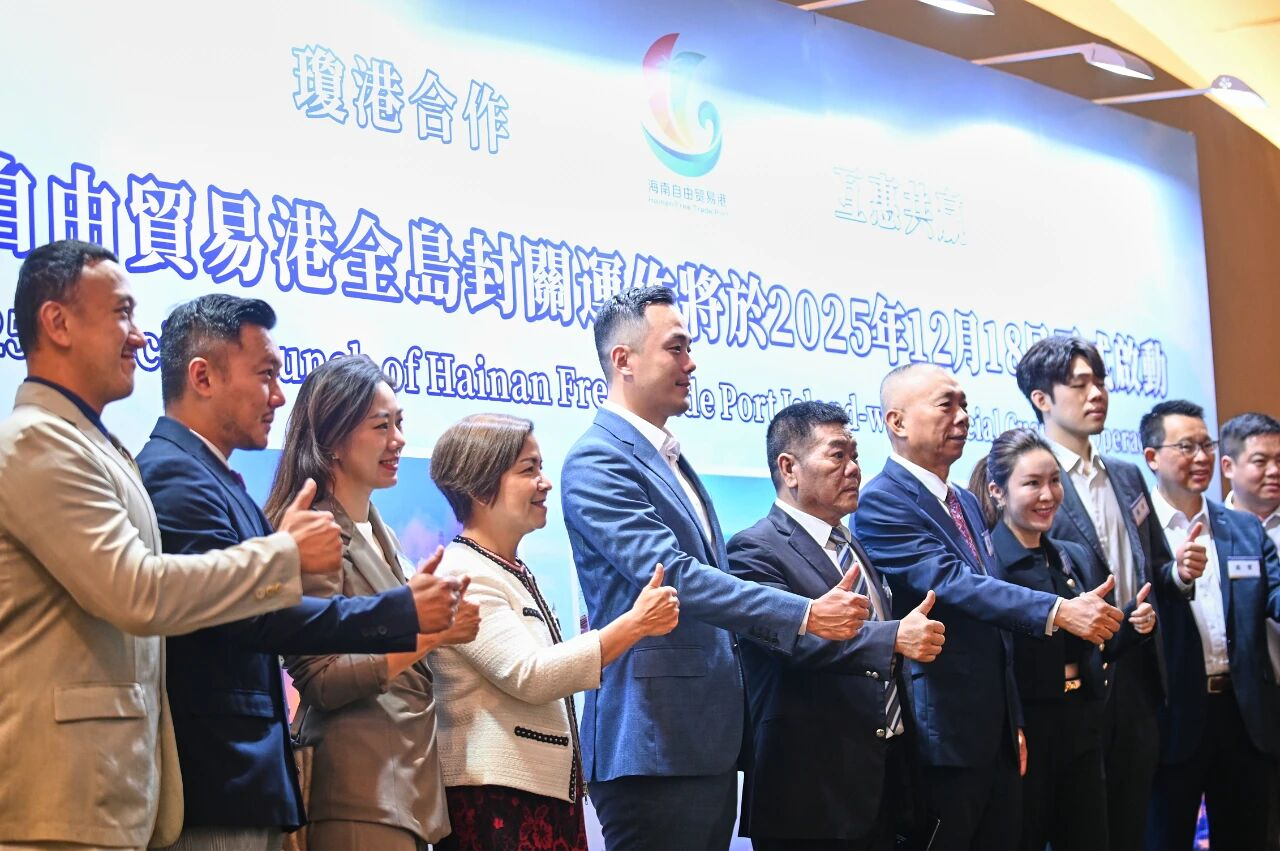
A photo of the conference held in Hong Kong.
Representing the HKSAR Government, Secretary for Commerce and Economic Development Algernon Yau stated that the HKSAR places great importance on cooperation and exchanges between Hainan and Hong Kong. Hong Kong will leverage its strengths to promote coordinated development between the GBA and FTP, land international projects in Hainan, facilitate Hainan capital investments overseas, and foster further mutually beneficial cooperation between the two regions to jointly contribute to national high-quality development and boosting economic momentum.
Continued optimization of FTP policy inject fresh momentum into bilateral coordinated cooperation
At the conference, officials from various Hainan government departments delivered industry promotion presentations and policy briefings. These included representatives from the Hainan IEDB, the Office of Hainan Free Trade Port Working Committee of the CPC Hainan Provincial Committee, the provincial Department of Finance, the provincial Development and Reform Commission, the provincial Department of Commerce, and Haikou Customs.
Tang Hua, Director of the Hainan IEDB, highlighted Hainan’s and Hong Kong's complementary advantages in her presentation. Hainan, Tang explained, is gifted with a beautiful ecological environment, a broad market reach, a high degree of economic openness, and a strong appeal to talents. Hong Kong, on the other hand, boasts world-class capabilities in scientific R&D, strengths in financial services, and a rich pool of international talent. Hong Kong can provide Hainan’s enterprises with technology, capital, and human resources support, allowing both sides to jointly cultivate new-quality productive forces. "Hainan and Hong Kong complement each other's strengths. Looking ahead, the prospects for industrial collaboration between the two regions are extremely bright, and the potential is limitless," Tang said.
Guan Jirong, Deputy Secretary-General of the CPC Hainan Provincial Committee and Executive Deputy Director of the Office of Hainan Free Trade Port Working Committee of the CPC Hainan Provincial Committee, noted that the construction of Hainan FTP has now entered a new phase of molding the momentum as special customs operations draws near. Hainan will implement even more preferential "zero-tariff" policies on goods, more relaxed trade management measures, more convenient travel and transit measures, and a more efficient and precise regulatory model. For example, the share of imports eligible for "zero-tariff" treatment under first-line customs (direct imports into Hainan from overseas) will rise from 21% to 74%. Goods can circulate among eligible enterprises within the island without incurring import duties, and products processed in Hainan that achieve at least 30% in added value can be sold to the Chinese mainland without incurring import duties. "Since the launch of the Hainan FTP, we have always placed emphasis on learning from Hong Kong and cooperating with Hong Kong," Guan explained. Since the signing of the Hainan–Hong Kong cooperation MOU, cooperation between the two sides has achieved continuous breakthroughs. In the first seven months of this year, Hong Kong investors established 382 new enterprises in Hainan, a year-on-year increase of 7.3%, and Hainan’s actual utilization of Hong Kong-sourced capital reached 11.87 billion yuan, up 99.3% year-on-year.
With special customs operations on the horizon, many are curious how the FTP's highly favorable policy system, which is already rich in incentives like the "zero-tariff" lists, the dual 15% income tax cap for enterprises and individuals, and the duty exemption policy on value-added processed goods sold in the Chinese mainland, will be further upgraded to inject new momentum into cooperation between the "two ports."
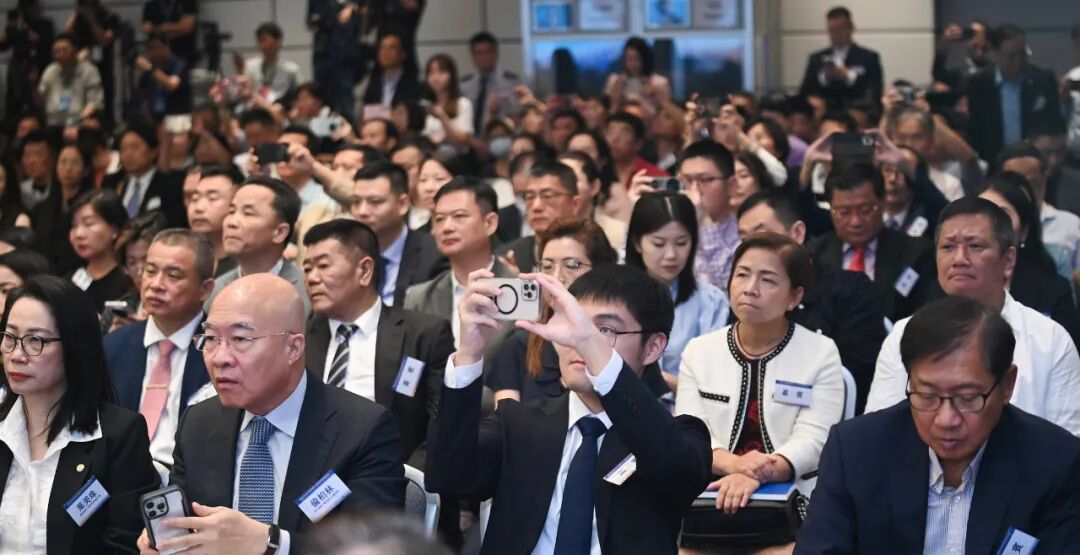
A photo of the conference held in Hong Kong.
Cai Qiang, Director of the Hainan Provincial Department of Finance, addressed this question by outlining recent tax policy developments. He noted that Hainan has so far implemented 18 tax policies in the FTP. After a State Council Information Office press briefing on July 23, the Ministry of Finance, the General Administration of Customs, and other central government departments unveiled three new policies in preparation for the upcoming special customs operations, including a catalog of taxable imports, measures outlining the tax treatment of goods moving into, out of, and within Hainan, and updated regulations on the duty exemption policy for value-added processed goods. These measures will take effect on the day the special customs operations begin. At that time, the current three "zero-tariff" import policies will be superseded and optimized by the taxable imports catalog and goods circulation tax policy, while the updated duty exemption policy for value-added goods will replace the existing pilot policy. All other tax incentives will continue to be implemented under the current provisions. Cai summarized the advantages of Hainan's FTP tax regime with four characteristics: "stability, uniqueness, systemic integration, and gradual progression." He noted that the FTP's tax policies are being introduced and upgraded in real-time, ensuring that policy support continues to strengthen and that the benefits of the policies are continuously delivered.
Prior to special customs operations, the central government had already granted Hainan the high-impact dual 15% income tax cap for eligible enterprises and individuals. Cai noted that this policy would continue to be implemented to attract more high-end, much-needed talent and high-quality enterprises to Hainan. In line with the continuation of this policy, Hainan will further refine and expand its catalog of encouraged industries, striving to include more sectors that meet the FTP's development needs and can drive coordinated regional industrial growth. This will allow the tax incentives to more precisely cover those high-quality enterprises, before eventually transitioning to a negative list approach. Hainan will also further its research into a personal income tax scheme with three progressive brackets of 3%, 10%, and 15%. In line with the Overall Plan for the Construction of the Hainan Free Trade Port, which emphasizes "maintaining a bottom-line mindset, making steady progress step by step, and implementing each measure once conditions are ripe," Hainan will advance reforms toward lower tax rates in a phased manner.
Focusing on building a modern industrial system with Hainan characteristics and strengths, Yang Shanhua, Deputy Director of the provincial Development and Reform Commission, detailed how Hainan is leveraging its natural endowments and the FTP's policy advantages to accelerate the cultivation of new drivers of production and continuously enhance its key industries. For example, anchored in the real economy, Hainan is concentrating on improving and strengthening four pillar industries: tourism, modern services, high-tech industries, and high-efficiency tropical agriculture. It is using scientific and technological innovation as the core engine to foster new industries and new business models, translating more technological achievements into industrial outcomes. In addition, by using industrial parks as important platforms, Hainan is accelerating industrial clustering and striving to turn these parks into fertile ground for nurturing industrial growth.
Yang noted that Hainan recently introduced the Law on Promoting the Development of the Private Economy in the Hainan Free Trade Port, which is the country’s first local legislation on supporting the private economy since the promulgation of the Law of the People’s Republic of China on the Promotion of the Private Economy. These new regulations provides targeted legal safeguards for Hainan’s private enterprises to seize the opportunities of the upcoming special customs operations, and to meet the challenges of greater opening-up. "Hainan now has clear policy advantages and enormous development potential; investing in Hainan is a case of being in the right place at the right time," Yang said. "We welcome everyone to invest and build businesses in Hainan. We will spare no effort in providing excellent services and support, so that we can share new opportunities and create a new future together."
Complementary advantages spell development success as market entities avail themselves to wealth of policy benefits
Li Zhiping, Deputy Director of the provincial Department of Commerce, pointed out that Hong Kong is Hainan's largest partner in trade in services and its third-largest partner in trade in goods. "Hainan and Hong Kong's industries are highly complementary," Li remarked. After special customs operations come into effect, Hainan will leverage Hong Kong's openness and international network to connect more conveniently with global markets. Likewise, Hong Kong can capitalize on Hainan’s geographical location, resources, and policy advantages to bring quality products into the mainland market at more favorable prices. For example, once Hainan FTP's special customs operations take effect, the "zero-tariff" list for goods will be significantly expanded, facilitating more high-quality products from Hong Kong to enter Hainan duty-free. Hong Kong's electronics and pharmaceutical companies are encouraged to set up manufacturing operations in Hainan by taking advantage of Hainan's "zero tariffs + value-added processing duty exemption" policies, thus establishing a cross-border industrial chain where "Hong Kong takes the orders, Hainan produces, and the products are sold globally." In addition, by making full use of Hainan’s strengths in transportation and processing services alongside Hong Kong's advantages in international shipping, finance, and high-end business services, the two sides can jointly build a procurement, distribution, and supply chain management center oriented toward the Asia-Pacific region, providing integrated logistics solutions for companies from both regions.
Li further highlighted the strong appeal that the Hainan FTP will have to foreign investors with the launch of special customs operations. He explained that investment costs will be further reduced, and market players will be able to enjoy all of Hainan FTP's existing preferential policies concurrently, making the FTP even more open and convenient. For example, following special customs operations, Hainan's "zero-tariff" list will expand to roughly 6,600 product categories, and optimized tax policies governing goods moving across the "first line," "second line," and within the island will be implemented. These measures will help to lower production and operating costs for enterprises based in Hainan.
Facilitating faster and freer movement of goods is a key concern for businesses. Tian Tao, Deputy Director of Haikou Customs, explained that after special customs operations come into effect, customs authorities will place greater emphasis on trade freedom and convenience, following an approach of "smart supervision, credit-based supervision, facilitation-oriented regulation, and coordinated co-management" to achieve highly efficient and precise oversight, and to speed up customs clearance at Hainan's ports. For example, at the "first line" (goods entering Hainan from overseas), most imports will be directly released without inspections, licenses, or duties, with the number of items requiring mandatory declaration streamlined from 105 to 33. At the "second line" (goods moving from Hainan into the Chinese mainland), the list of goods requiring mandatory declaration will be reduced from 105 to 42 items, and an innovative "batch exit, consolidated declaration" model will be implemented, achieving "one-time declaration, one-time inspection, one-time release" for goods heading to the mainland from Hainan.
The duty exemption policy for value-added processed goods is one landmark policy of the Hainan FTP that has drawn wide attention. Tian explained that under this policy, goods produced by enterprises in encouraged industries within the FTP using imported materials can enter the mainland without incurring import duties if their value has increased by at least 30% after processing in Hainan (with import VAT and consumption taxes still levied according to regulations). This pioneering policy, first piloted by Hainan in 2021 in the Yangpu Economic Development Zone, has since been gradually rolled out across the entire Hainan FTP. In the four years since the policy's implementation, more than 10 billion yuan worth of goods processed in Hainan have entered the mainland market, amounting to 810 million yuan in cumulative import duty exemptions. The range of industries benefiting has expanded from initial sectors like grains and edible oils, jade, and meat products to now include pharmaceuticals, jewelry, petrochemicals, and other product categories, effectively spurring the development of Hainan's real economy.
Tian also noted that with the launch of special customs operations, this policy will be further refined and enhanced in four key aspects: lowering the threshold for enterprises to qualify for the exemption, expanding the range of import materials that are covered, counting Hainan-produced materials toward the 30% value-added requirement, and broadening the scope for how value-added is calculated cumulatively. "After special customs operations, the requirements to benefit from value-added processing duty exemption will be lowered, sources of import materials will be more diverse, and it will become easier for companies to achieve the required value addition," said Tian. "This will enable more market entities to benefit and will broaden the policy's application scenarios. It will help link up upstream and downstream industry chains and form industrial clusters in high-end processing and manufacturing, greatly enhancing the competitiveness of the Hainan FTP's specialty industries in both domestic and international markets," she added.
The conference also featured an on-site contract signing ceremony, during which relevant organizations and enterprises from Hainan and Hong Kong signed 12 cooperative projects covering a variety of fields, including culture and tourism, technology, and food processing. The event attracted over 400 participants, including officials from the Hong Kong Special Administrative Region Government, heads of central government agencies based in Hong Kong, representatives from various sectors of Hong Kong society, and members of the press.
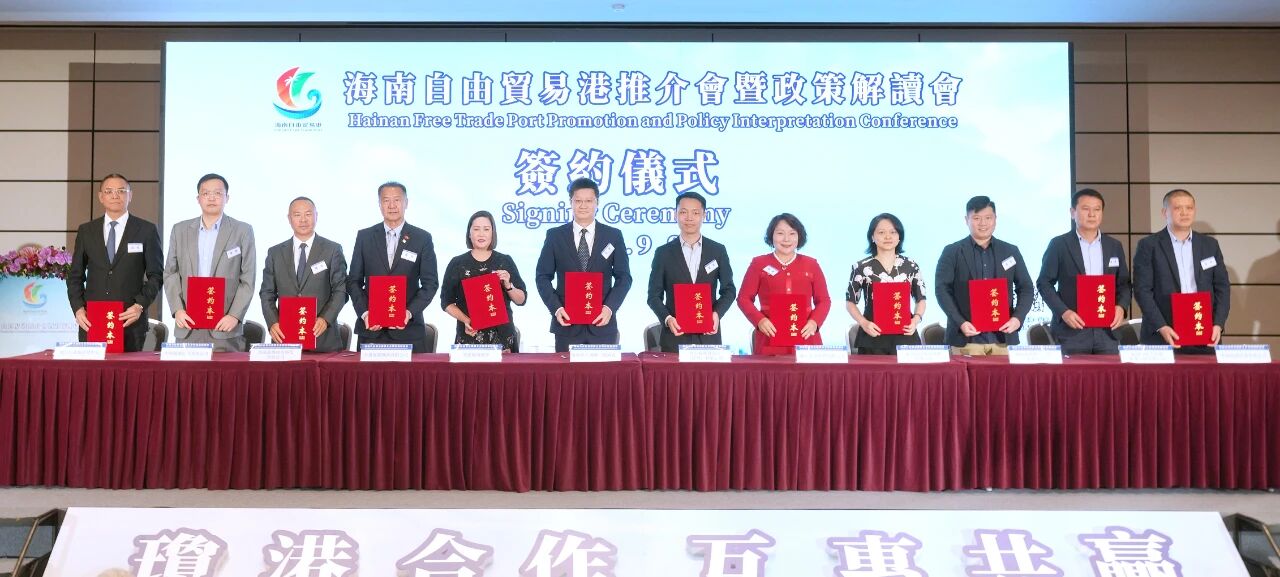
The signing ceremony at the conference.
Discover

Hainan × HK: A Tale of Two Free Trade Hubs
17:59,15-September-2025
Hainan Issues Dim-Sum Bonds in HK, Featuring the Space Bond
17:59,15-September-2025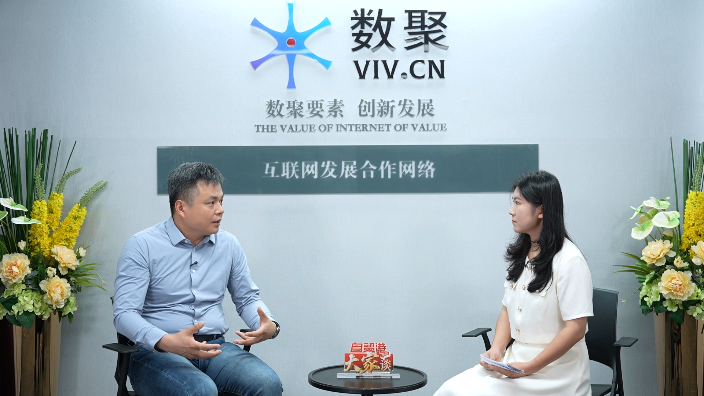
FTP Expert Talks | Xiaodong Lee, Vice President of the Internet Society of China and Founder of the Fuxi Institution: Hainan is the "Nebula" of New Digital Youth
21:47,12-September-2025
What Makes "Hainan Travel" So Appealing?
21:38,11-September-2025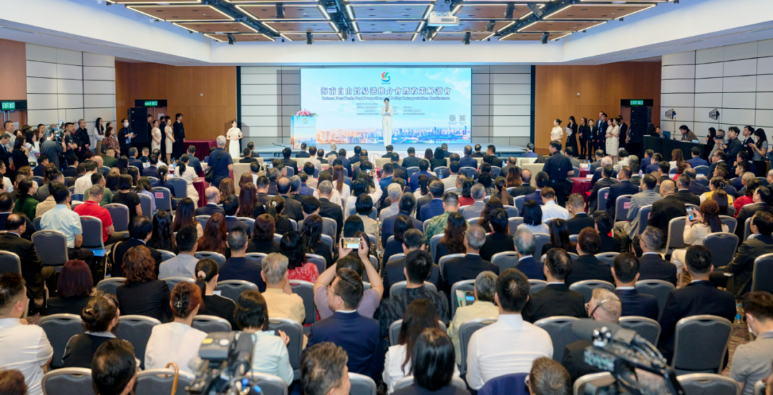
100 Days to Go: What's Next for Hainan-Hong Kong Cooperation?
21:38,11-September-2025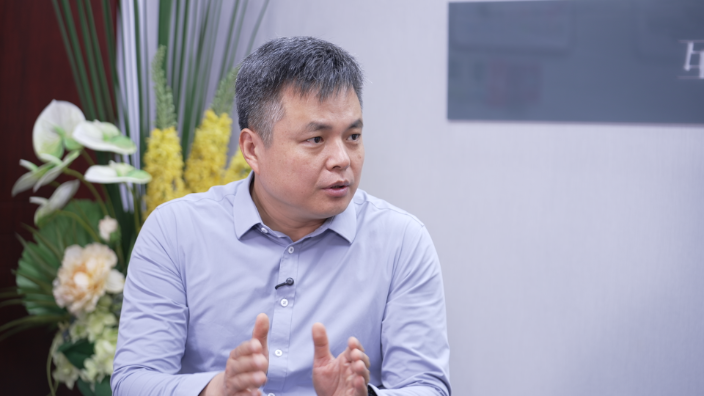
Expert Talks Ep. 4: The Future of the FTP's Digital Economy
21:35,11-September-2025










 thisishainan@163.com
thisishainan@163.com